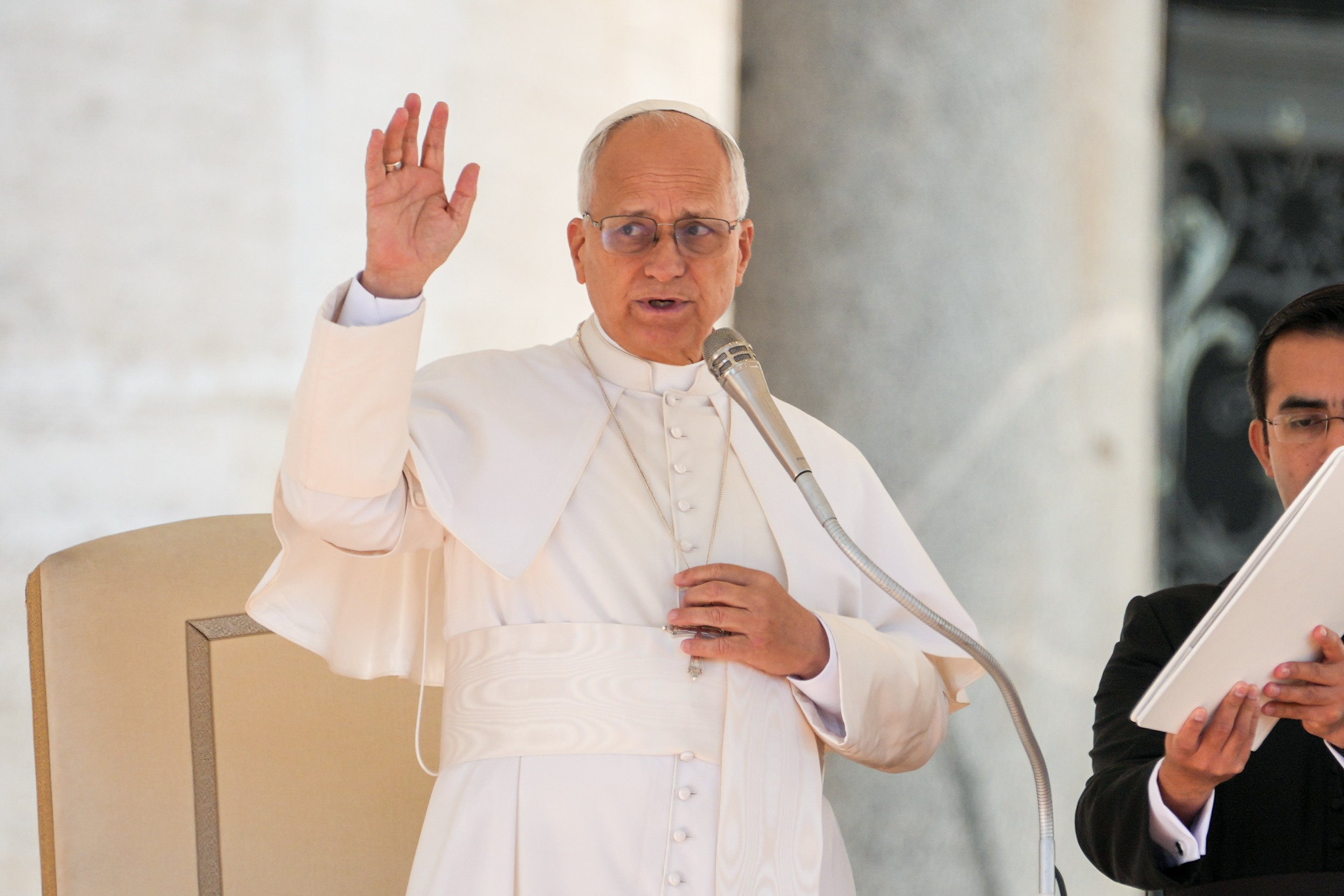April 6, 2018 at 1:53 p.m.
WORD OF FAITH
Forgiving, ever and always
'I forgave you...because you pleaded with me. Should you not have had mercy on your fellow slave, as I had mercy on you?' Matthew 18:32-33
Though I hate to admit it, my homilies normally create little stir in the people who hear them. But one I gave years ago on God's unconditional forgiveness was an exception.
It wasn't well received. One man especially, as he was going out the church door, angrily whirled around and yelled, "Thank God my teenage son wasn't here this morning. If he'd heard that nonsense, I'd never be able to control him again!"
He hit the forgiveness nail on the head. When we forgive, we give up control.
In Sunday's second reading (Romans 14:7-9), Paul reminds the Christian community that, no matter what we do in life, we somehow relate to others: "None of us lives for oneself, and no one dies for oneself."
The Apostle's concerned with how we relate to God, but he adds a significant comment about Jesus' relationship with us: "For this is why Christ died and came to life, that He might be Lord of both the dead and the living."
In other words, Jesus' dying and rising has something to do with our dying and rising. What He did, He didn't do in a vacuum.
Us and them
Even without knowing about Jesus' future death and resurrection - or even an afterlife as we know it - Sirach (27:30-29:9) sees how our proper relations with others add fulfillment or tension to our daily lives, especially when it comes to forgiveness.
"Wrath and anger are hateful things, yet the sinner hugs them tight. The vengeful will suffer Yahweh's vengeance, for He remembers their sins in detail. Forgive your neighbor's injustice; then when you pray, your own sins will be forgiven," he writes. One need not reach the pearly gates before benefiting from forgiving others.
Though the historical Jesus believed in an afterlife, as a good Jew He, like Sirach, was concerned that each follower of God experience as free and fulfilling a life as possible right here and now.
Such freedom and fulfillment demands we not be controlled by others, even in situations in which others are not actively trying to control us. The latter always happens when we refuse to forgive.
Life of forgiveness
Matthew's Jesus (Mt 18:21-35) presumes forgiveness is a lifelong process. Jesus demands His followers look at the issue of vengeance from a completely new perspective: It's the letting go, not the enforcing of vengeance that brings happiness.
Jesus commands we're to forgive not just the perfect seven times, but 77 times - an idiom for infinity. He also gives a new twist to Sirach's belief that God will eventually forgive those who forgive.
According to His parable, we should forgive because we've already been forgiven by God. God's forgiveness doesn't flow from our forgiveness; it precedes it. It's the motive for our forgiveness.
Throughout Scripture, we're encouraged to be "holy as Yahweh is holy." The Hebrew word for holy - "kadosh" - means "other." Since God is totally other from all creation, so holy people are to be other from their fellow human beings.
A friend once mentioned that she couldn't imitate any of God's attributes except forgiveness. "It's the only part of God's life," she said, "that I can make part of my life."
Not only would our forgiving behavior make us other, but our free, uncontrolled life would also make us other.[[In-content Ad]]
SOCIAL MEDIA
OSV NEWS
- Pope offers prayers for the Philippines and for peacemakers
- Dig deep and work patiently to keep church on solid foundation, pope says
- Portland archbishop on ICE: Human dignity comes from God, not government
- Christian hope shows the earth can resemble heaven, pope says
- Washington Roundup: Election shifts; Venezuela vote; transgender passports, and more
- Novel highlights power of art and music as a salve to troubled humanity
- Supreme Court sides with Trump administration to temporarily block full funding for SNAP
- Former diocesan fundraising director indicted on wire fraud for alleged 6-figure theft
- Love is key to church’s mental health ministry, says bishop who lost family to suicide
- Caring for creation is part of peacemaking, pope tells COP30







Comments:
You must login to comment.